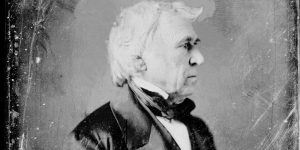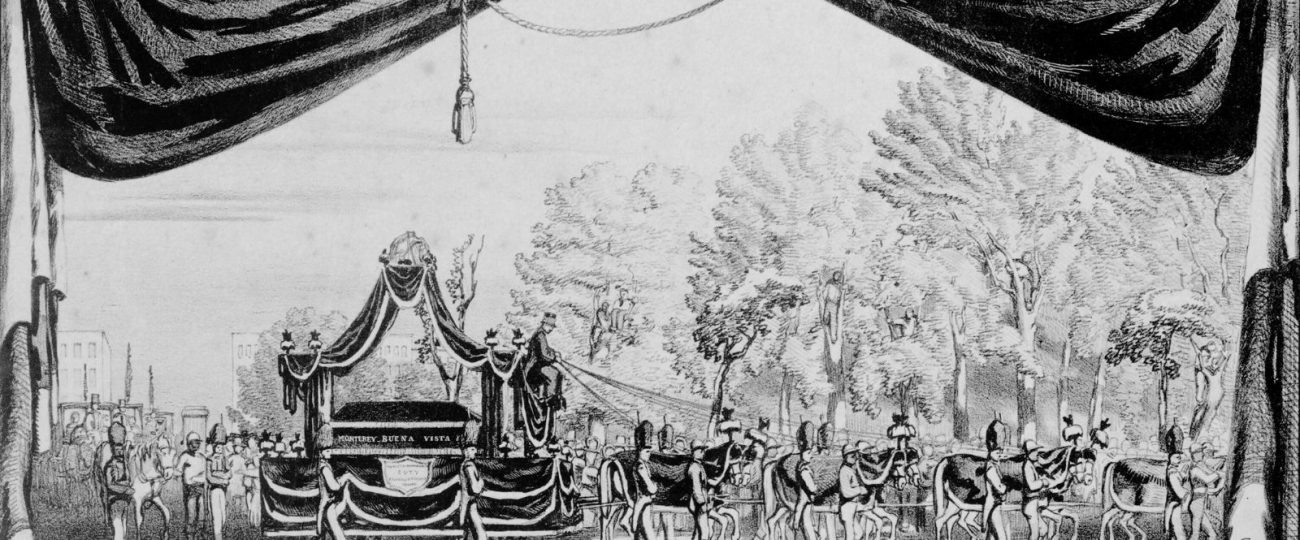What Happened On July 9th?
On July 9, 1850, the United States encountered an unforeseen crisis: the death of its 12th President, Zachary Taylor. Known as “Old Rough and Ready” for his military career, Taylor’s demise occurred amidst heated debates over slavery and territorial expansion.
From Battlefield Hero to President
Zachary Taylor’s route to the presidency was anything but conventional. Born on November 24, 1784, in Virginia, Taylor was raised on the Kentucky frontier. His military career commenced in 1808 and extended over forty years, bringing him national acclaim. Distinguished service in the War of 1812, the Black Hawk War, and the Second Seminole War solidified his reputation. His leadership during the Mexican-American War (1846-1848) was particularly notable. Victories at the Battles of Palo Alto, Resaca de la Palma, and Buena Vista demonstrated his tactical prowess and garnered him widespread admiration.
Despite lacking any prior political experience, Taylor’s military achievements thrust him into the national spotlight. In 1848, the Whig Party selected him as their presidential nominee. His fame as a war hero played a significant role in his electoral victory, and he assumed office on March 4, 1849. Intriguingly, Taylor had never voted in a presidential election before his own.
Taylor’s unconventional path to the presidency, characterized by his extensive military service, set him apart from his predecessors. His rise to national prominence without traditional political experience showcased his unique appeal to voters who valued his leadership and straightforward demeanor.
A President in the Crossfire
Taylor’s presidency unfolded during a period of intense national discord. The country was sharply divided over slavery and its expansion into territories acquired from the Mexican-American War. Although a slaveholder himself, Taylor staunchly opposed the extension of slavery into the western territories. He advocated for these new regions to become free states, a stance that alienated many Southern leaders.
Taylor’s position on slavery exacerbated tensions within his party and the broader political arena. The debate intensified in 1850 with the proposed Compromise of 1850, which aimed to mitigate sectional conflicts. Taylor opposed the compromise, advocating instead for the immediate admission of California and New Mexico as free states without conditions. This opposition put him at odds with powerful figures like Henry Clay and John C. Calhoun, who had different visions for the nation’s future regarding slavery.
Taylor’s insistence on a firm stance against slavery’s expansion reflected his belief in preserving the Union above sectional interests. His administration faced challenges from both Northern abolitionists and Southern pro-slavery advocates, highlighting the complexity of navigating the political landscape of the time.

The Mysterious Illness
On July 4, 1850, President Taylor attended Independence Day festivities in Washington, D.C. After consuming raw fruit and iced milk, he fell ill. Initially, his condition was diagnosed as severe gastroenteritis. Over the following days, his health rapidly deteriorated despite the efforts of his doctors. These medical professionals, constrained by the limited knowledge of their time, employed treatments like calomel and opium, which might have exacerbated his condition.
As the nation anxiously awaited updates on the President’s health, rumors and speculations abounded. On July 9, 1850, at 10:35 p.m., Zachary Taylor passed away. His sudden death, after merely 16 months in office, led to widespread mourning and uncertainty.
The public reaction to Taylor’s death was one of profound grief and confusion. Newspapers of the time captured the nation’s collective sense of loss and the abruptness of his departure. Memorials and tributes poured in from all corners of the country, reflecting the widespread respect and admiration for Taylor, despite his short tenure as president.
Theories On Taylor’s Death
Taylor’s abrupt illness and demise spawned numerous theories and speculations. Some contemporaries suspected he had been poisoned due to the era’s political turbulence. However, most historians concluded that his death resulted from acute gastroenteritis exacerbated by the sweltering weather and unsanitary conditions.
In 1991, researchers exhumed Taylor’s body to test for arsenic poisoning. The results revealed no evidence of foul play, supporting the belief that his death was due to natural causes. Despite this, the mystery surrounding his death added an element of intrigue to his brief presidency.
The examination conducted in 1991 involved detailed forensic analysis, which helped dispel long-standing rumors of assassination. This exhumation brought some closure to the mystery, although it also highlighted the limitations of 19th-century medical practices and the difficulties of diagnosing and treating illnesses in that era.

Fillmore: Filling The Presidential Vacancy
Taylor’s death elevated Vice President Millard Fillmore to the presidency. Unlike Taylor, Fillmore endorsed the Compromise of 1850, which eventually passed and temporarily alleviated sectional tensions. Fillmore’s rise to the presidency shifted the administration’s approach to the slavery issue.
Though Taylor’s tenure was brief, his firm opposition to the spread of slavery set a notable precedent and underscored the nation’s profound divisions. His sudden death exposed the fragility of life and leadership, exposing the uncertainties inherent in American politics.
Fillmore’s presidency, influenced by the necessity to maintain national unity, saw the passage of the Compromise of 1850, which included controversial measures like the Fugitive Slave Act. This legislation aimed to balance the interests of free and slave states, but it also intensified the national debate over slavery, foreshadowing the conflicts that would eventually lead to the Civil War.
Old Rough and Ready, Remembered
Zachary Taylor earned widespread respect and admiration as a military leader. His presidency, albeit short, was a courageous stand against the expansion of slavery, aligning with the values of many Northern Whigs and abolitionists. Taylor’s unexpected death curtailed his efforts, but his influence persisted in the ongoing debate over slavery and states’ rights.
Today, Americans remember Taylor for his service to the nation, both on the battlefield and in the White House. Initially interred in the Congressional Cemetery in Washington, D.C., his remains were later moved to the Zachary Taylor National Cemetery in Louisville, Kentucky.





